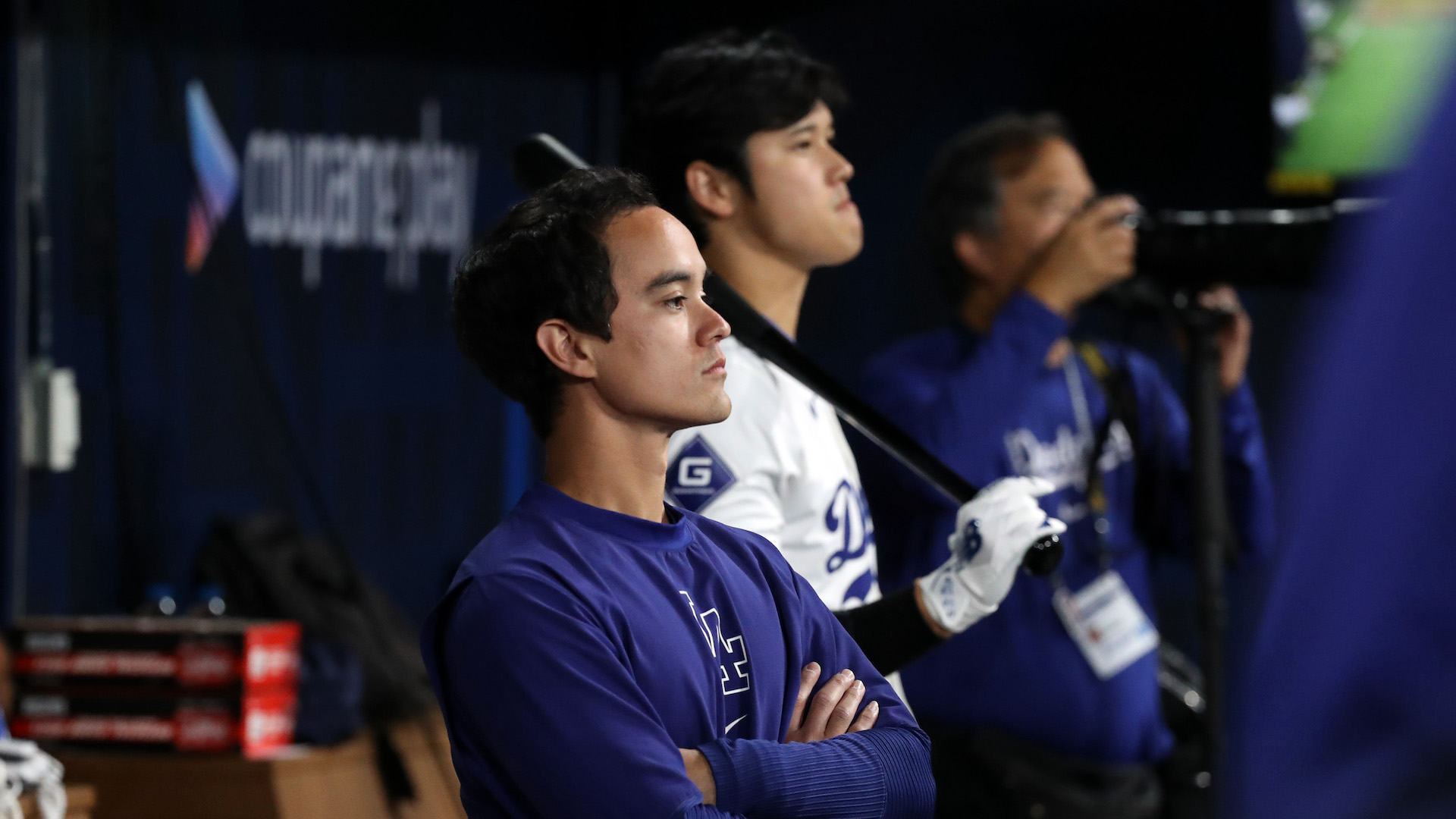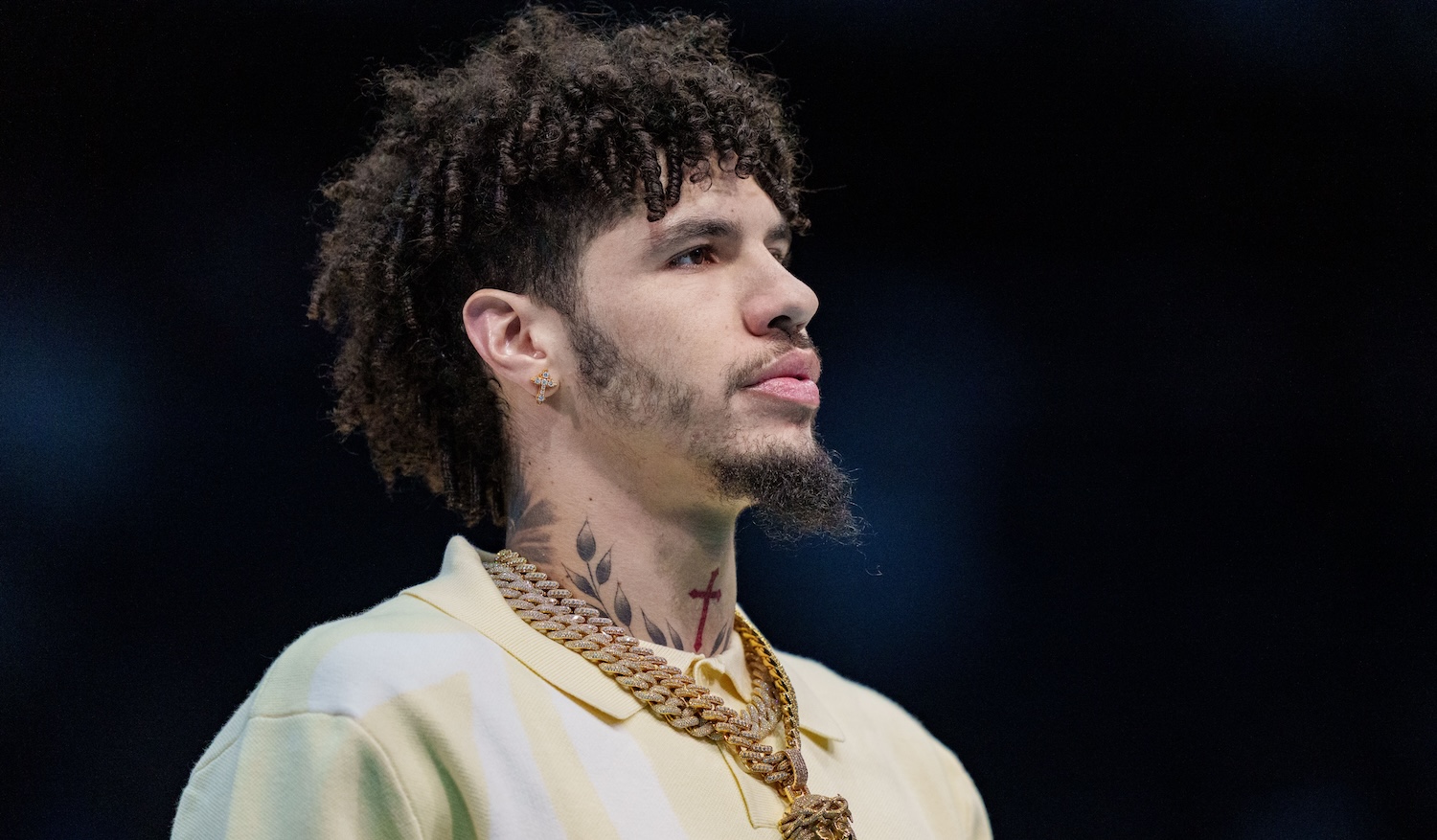In Shohei Ohtani's press conference on Monday, his first interaction with the press since last week's news, he debuted an interim interpreter: Will Ireton, a member of the Los Angeles Dodgers' player development team and former interpreter for Kenta Maeda. During the press conference, Ohtani referenced but largely did not read directly from a sheet of paper, while Ireton took notes and provided a live translation, which can be found transcribed here. In it, Ohtani reiterated that he never gambled on sports, never asked someone else to gamble on his behalf, and never went through a bookmaker to gamble. He said that his former interpreter, Ippei Mizuhara, had stolen money from him, and laid out his timeline of events.
Ohtani said in the presser that Mizuhara had never informed him about any investigation or media inquiry from ESPN, and lied to his representatives about him paying off a friend's gambling debt. It wasn't until the team meeting in the clubhouse after the first Global Series game, when Mizuhara admitted to the team that he had a gambling addiction and that a negative story was coming out, that Ohtani realized that something was amiss. After speaking to Mizuhara one-on-one in the team hotel, the interpreter confessed that he had a massive debt, and admitted he was sending money using Ohtani's account to the bookmaker. Ohtani then contacted his representatives, who learned that Mizuhara had been lying, before Ohtani reached out to the Dodgers and his lawyers, who released the statement alleging theft.
Other interpreters within baseball have suggested that it's not beyond the realm of possibility for Mizuhara to have taken Ohtani's money without his knowledge. According to a translation by Jeffrey J. Hall on Twitter, Katsunori Kojima, a former interpreter for the Mets and Giants, stated on Japanese television that he often handled financial transactions for players, including banking and car payments. Interpreter Daniel Kim also said that he carried player checkbooks for clubhouse dues. And that's without factoring in the additional layer of Ohtani's reported friendship with Mizuhara.
Ohtani's account aligns with the timeline provided by ESPN's Tisha Thompson this past Friday, clarifying what the term "Ohtani's camp" entails: ESPN had reached out to Ohtani's agent Nez Balelo about the wire transfers, and received a response from a "crisis-communications spokesman," who had just been hired in response to the inquiry. The spokesman then told ESPN that Balelo had reached out to Mizuhara, who "came clean," and that Ohtani had told Balelo that he had covered Mizuhara's debts. ("It's not clear whether the spokesman is saying Ohtani communicated with Balelo through Mizuhara," ESPN wrote.) ESPN, understanding that the spokesman worked for Ohtani, requested to hear the story from Mizuhara, which was why the original 90-minute Tuesday interview was arranged.
After Mizuhara addressed the team on Wednesday in the clubhouse, the spokesman reached out to ESPN to say not to publish the original story, stating that Mizuhara had been lying and that all communication between Balelo and Ohtani was mediated by Mizuhara. After the Dodgers fired Mizuhara hours later, ESPN reached Mizuhara by phone; he admitted to lying in the interview but did not answer when asked about stealing from Ohtani.
This version of events provides an alternate, comparably simpler explanation to the theories of why the Ohtani camp's statement had changed: Mizuhara was lying. Ohtani's agent and spokesman had never independently confirmed with the ballplayer that Mizuhara's narrative was true, and because the ESPN reporter assumed that the spokesman was speaking for Ohtani directly, they requested to speak with Mizuhara independently. All of this would have been done with Mizuhara as the touchpoint for all English-language communication with Ohtani. In this case, though the spokesman was hired by Ohtani's camp, Ohtani's words would by necessity come through Mizuhara.
In this case, Balelo, the CAA, and the crisis-communications spokesman would not have been able to corroborate the story with Ohtani himself without providing their own interpreter who also spoke both Japanese and English. They did not do this, even after it became clear that Mizuhara was personally involved in the issue. During Monday's press conference, Ohtani mentioned that the postgame clubhouse meeting was conducted in English, so Ohtani did not have someone to translate for him. He stated that he could grasp that something was amiss, but did not realize that Mizuhara had lied to him until they spoke one-on-one in the hotel later.
Every English-language transcript of Ohtani's statement is a translation, and Ireton's interpreting during the press conference is no exception. That's not to say that Mizuhara serves as some call to assume all translations are inaccurate, but it's a reminder that for an athlete like Ohtani, all English statements provided for the public are being mediated by someone else. Yesterday's press conference reified this stark power of an interpreter to be the sole English voice for an athlete on even just a public-facing level, not to mention the behind-the-scenes conversations with GMs, agents, or managers.
One big question in the aftermath of ESPN's initial report was why Ohtani's camp would arrange a lengthy interview with Mizuhara, then within 24 hours totally change the explanation. Ohtani's press conference, taken in tandem with ESPN's timeline, suggests it stems from an issue of translation. Balelo and the two-hours-on-the-job crisis-communications spokesman reached out to Mizuhara in order to communicate with Ohtani; when Mizuhara said that Ohtani had paid off a friend's debts, that became, to them, Ohtani's side of the story. ESPN assumed the spokesman, as a representative of Ohtani, was only providing Ohtani's side of the story, so there was no need to speak to Ohtani directly. Then ESPN requested an interview with Mizuhara to get his perspective. In this sequence of events, the end result would be almost comical: Only at the clubhouse meeting would Ohtani learn that any of this was happening.
What remains now are the details of how Mizuhara stole $4.5 million from his client and friend, as Ohtani and his attorneys claim. That'll require further investigation, moving at whatever pace MLB and the IRS choose.






